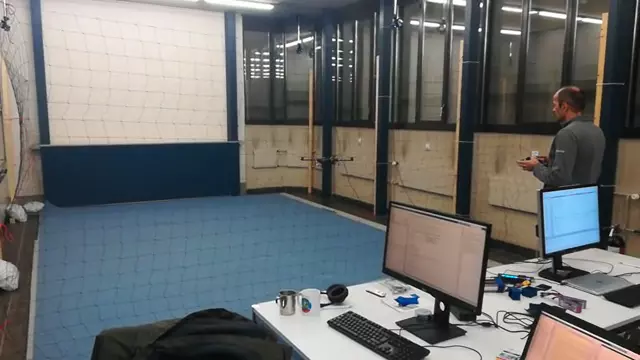BIMprove, the digital twin for the construction site
The BIM technology (Building Information Modeling) is a working method that supports the construction of buildings with the help of modern information technology. This enables a much more efficient construction process compared to conventional construction planning. This not only reduces construction costs, but is also an essential contribution to resource-saving construction. Global population growth is being linked to an intensification of the construction industry, which is an increasing burden on the Earth's resources. By increasing funding for research in the construction sector, the EU aims to ensure that it can be as resource-efficient as possible.
In addition to the construction plan, BIM also includes the information of the various construction phases and their schedule. However, a BIM model is static, i.e. it is created during the planning phase and does not change when the planning is completed. However, as many people know from their own experience, there are usually quite large differences between planning and execution as construction progresses. The current status of the construction site is currently carried out via regular inspections, which can also have errors in the recording of the data and are very personnel-intensive for large construction sites. In addition, the data usually has to be digitized retrospectively in order to be compared with the BIM model. It would therefore be ideal if this process could be automated and a continuous tracking of the construction condition is possible.
This is where the "digital twin" mentioned at the beginning comes into play. The term borrowed from the automation world ("Industry 4.0") refers to a dynamic model that uses suitable sensors in "real time" to reflect the actual state of the modeled production machine. Of course, recording the actual condition of a construction site is a not so easy task and therefore also an important research task in the BIMprove project. Among other things, the task of the ZHAW team is to let drones equipped with sensors fly through the construction site in order to collect data on progress on the construction site.

The EU-funded "BIMprove" project (Improving Building Information Modelling by Realtime Tracing of Construction Processes), funded by the EU under the Horizon 2020 Research & Innovation Programme, engages 12 partners from different European countries, with the overall project management being at the Norwegian research institution "SINTEF" and the technical project management being carried out by Dr. Ruprecht Altenburger, Head of the Control Technology Team at the IMS of ZHAW.
Project details
Project website: https://www.bimprove-h2020.eu/
Funding: EU, Grant Agreement 958450
Project start: 2020
Project duration: 36 months

Prof. Dr. Ruprecht Altenburger
ZHAW
School of Engineering
Forschungsschwerpunkt Control Engineering & Advanced Control
Technikumstrasse 9
8400 Winterthur


